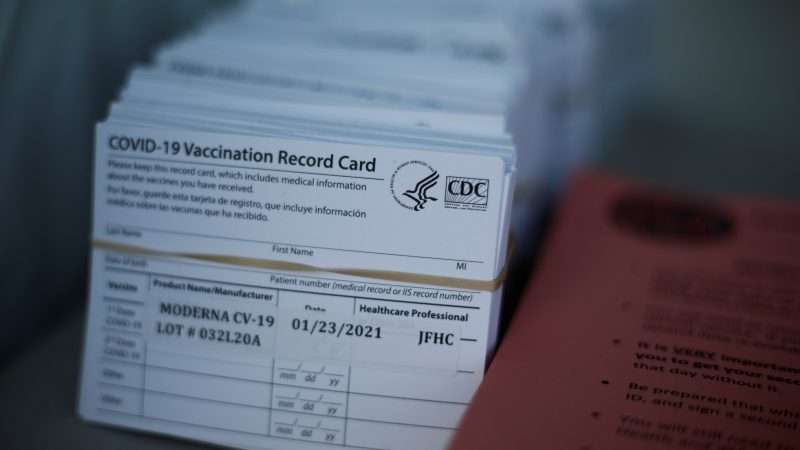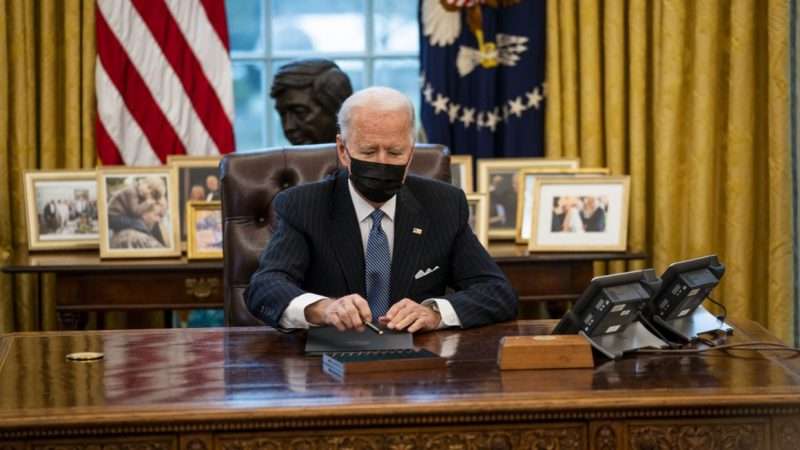Across the country, a flurry of new legislation aims to expand educational options during the pandemic and beyond. Iowa is on its way to passing a major school choice bill backed by Republican Gov. Kim Reynolds. Nebraska may bring opportunities for homeschooled students to play team sports and participate in public school extracurriculars. Colorado, Florida, Georgia, Indiana, Missouri, Vermont, and Washington state are also considering some positive changes.
In celebration of National School Choice Week, here’s a look at some of these reforms.
Iowa
A new proposal from Reynolds establishes school choice in Iowa by granting state scholarships to public school students who want to attend private schools. “We do not believe this is a private vs. public school debate. It is simply a school choice for the parents to choose,” said Anne Rohling, president of St. Albert Catholic School and a strong supporter of the proposal. “Open enrollment in the public schools [has] allowed families the opportunity to seek out the best fit for their children. If this legislation will empower more families to have more choices, then we are in support of it.”
But the bill also faces strong opposition, in and outside the Iowa statehouse. The President of the Iowa-Nebraska NAACP “says this could lead to segregation in some Iowa Schools,” reports CBS 2 Iowa. “We agree that parents should have the choice to enroll their child in a private or religious school, but not with public taxpayer funds,” said Council Bluffs Superintendent Vickie Murillo.
Larry Gray, director of the Council Bluffs Heartland Christian School, responded:
The concern we hear from parents has always been ‘we live in the community, pay for and attend a Christian school, but our taxes still go to the public school system.’ I would say that most—if not all—parents would simply appreciate their tax dollars going to the school of their choosing.
On Monday, the legislation (Senate Study Bill 1065) cleared the Iowa Senate Education Committee.
Washington
Washington state Rep. Vicki Kraft (R–Vancouver) is trying to establish a school choice voucher program in her state. Last week, Kraft introduced House Bill 1215, which “would establish the K-12 Education Scholarship Program in Washington state [to] award up to $7,000 per student each school year to be used for costs related to private school or homeschool instruction,” according to Clark County Today.
“We’ve seen how students have been affected this past year from a lack of education choices. This year alone, more than 32,000 Washington families have pulled out of the public-school system as they find that traditional zip-code assigned schools are simply not working for their children,” said Kraft in a statement. “This bill will allow parents to be able to provide the best learning environment for their child, no matter what the circumstance.”
Nebraska
State Sen. Dave Murman (R–Glenvil) seeks to expand athletic and extracurricular activities for homeschooled students. Murman’s bill (LB210) would let homeschooled kids participate in sports and other activities at local public schools. LB210 “would require school boards to set policies affording the same access to athletics, music, journalism and speech as public school students, without requiring home-school students to earn any credit at the school,” reports the Lincoln Journal-Star. “Under current guidelines, students must enroll in at least 10 credit hours—or two classes per day—to participate in extracurricular activities.”
Colorado
Legislation from state Sen. Tammy Story (D–Jefferson County) and Rep. Cathy Kipp (D–Fort Collins) would remove a requirement for public colleges and universities to get standardized test scores from all applicants. “We believe there are plenty of students out there who have great potential while they may not have great tests scores,” said Story. “They should have all the same opportunities to go forward with higher education if they choose.”
Georgia
A proposal from Rep. Kasey Carpenter (R–Dalton) would let the state’s undocumented immigrants living legally in the U.S. under the Deferred Action for Childhood Arrivals (DACA) program pay in-state tuition at Georgia’s public colleges and universities. “If it becomes law, DACA recipients will pay the same rates as other Georgians, provided they are under 30, graduated from a Georgia high school, have been in Georgia for four years and have been living in the United States since they were at least 12,” reports the Georgia Recorder.
Georgia is also considering a larger school choice bill:
House Bill 60 would put money into a state fund that would pay for private school tuition and learning materials for homeschooling, and pay state money directly to vendors providing it.
“I genuinely believe that everyone does better if we provide an option for that four or five percent of students who are not performing well in their traditional public school,” said the bill’s sponsor, state Rep. Wes Cantrell (R-22nd Dist., Woodstock).
Cantrell says public schools would keep the tax dollars funded by local property taxes but would lose the per-student portion funded by the state government. That state portion would fund home school supplies or private tuition.
Missouri
Missouri is on its way to expanding charter school options and vouchers for homeschooled and private school students. Senate Bill 55, from state Sen. Cindy O’Laughlin (R–Shelbina), “passed its first hearing Thursday, but not before the measure morphed into an even larger omnibus package making it the 2021 session’s likely flagship education legislation,” notes The Center Square. “Its next stop is the Senate floor for debate.”
FLORIDA
Last week, Florida state Sen. Manny Diaz (R–Hialeah) introduced a bill to expand and consolidate school choice voucher programs.
Indiana
Indiana House Bill 1005 would expand the number of stipends available for students to use on private school education. “About 12,000 students who already attend participating private schools but don’t currently qualify for state aid could become eligible,” says the Indiana Business Journal. “In addition to expanding eligibility for state vouchers to more students from middle-income families, the bill would create a form of school choice—known as education savings accounts—that would give stipends to parents of children with special needs to spend on their education.”
Vermont
Vermont is considering a proposal to launch an “education freedom account program.” HB 20 says “families whose children have left their local public school [can] redirect state aid to the educational program of that family’s choice,” reports New Hampshire Public Radio.
See also: How COVID-19 Made School Choice a Priority
FREE MINDS
The Supreme Court won’t hear a case out of Nevada concerning state restrictions on religious services during the COVID-19 pandemic. “In a one-line order, the court said it would not hear an appeal from Calvary Chapel Dayton Valley, a church in western Nevada that has been battling pandemic restrictions imposed by Gov. Steve Sisolak,” notes NBC News:
The rules originally allowed casinos, restaurants and other businesses to operate at 50 percent capacity while limiting churches to no more than 50 people, regardless of a facility’s size.
The state has since imposed a 25 percent capacity limit on most public gathering places, including movie theaters, casinos, restaurants, bars and religious constitutions. It therefore is not engaged in religious discrimination, lawyers for the state told the Supreme Court.
FREE MARKETS
Pundits push advertisers and cable companies to cancel conservative networks. Flush with undeserved credit for reforming Pornhub, New York Times columnist Nicholas Kristof is now calling for companies to “pressure on advertisers to withdraw from Fox News” as well as other right-leaning networks, including Fox Business, One America News Network, and Newsmax TV.
Meanwhile, Max Boot of The Washington Post wants the Biden administration to turn the Federal Communications Commission against Fox News and writes that if that doesn’t happen, “large cable companies such as Comcast and Charter Spectrum, which carry Fox News and provide much of its revenue in the form of user fees, need to step in and kick Fox News off.”
“All of these commentators should refamiliarize themselves with the First Amendment,” suggest the editors at National Review, “and then follow up with a closer reading of the laws and Supreme Court decisions that have shaped the interpretation of that basic right, as well as the FCC’s regulatory authority. They might also consider that their own jobs depend upon the social acceptance of free speech as a value. The tools of authority, once taken up on the left, will inevitably tempt a response from the right.”
FOLLOWUP
Supreme Court vacates 5th Circuit’s abortion access ruling. Toward the start of the pandemic, Texas Gov. Greg Abbott, a Republican, declared all abortions (including non-surgical abortion) to be among the nonessential medical procedures which were off-limits. At first, “a federal judge in Texas declared the order too broad and lifted the ban. But the 5th U.S. Circuit Court of Appeals in New Orleans restored it,” explains NBC News.
Abbott issued a new order a short time later that allowed abortions in Texas to resume, but the state asked the Supreme Court to keep the appeals court rulings on the books.… In a brief order, the Supreme Court dismissed the appeal and vacated the 5th Circuit’s ruling.
QUICK HITS
- Nine Houston police officers were indicted by a grand jury, one of them on a murder charge. The indictments stem from a 2019 drug raid in which officers killed 59-year-old Dennis Tuttle, his 58-year-old wife Rhogena Nicholas, and their dog.
- D.C. is set to send home 6,000 National Guard troops …. leaving 7,000 still in the city. Around 5,000 troops will be there through at least part of March, a Department of Defense spokesperson said yesterday.
- California Gov. Gavin Newsom, a Democrat, lifted the state’s stay-at-home orders.
- “Josh Hawley believes disliking Josh Hawley is an act of censorship,” writes Jonathan Chait.
- Twitter unveils a new fact-checking feature, Birdwatch.
from Latest – Reason.com https://ift.tt/3sUV1TY
via IFTTT


